The constituent elements of any physical objects can be divided into three classes: metallic elements, non-metallic elements, and rare gas elements. Different types of elements have different functions and could constitute different substances. The characteristics and functions of the substances can be evaluated via determination of the elements.
The elemental analysis platform at Lifeasible is dedicated to providing our customers from both academia and industry with robust technical and scientific support for the elemental analysis of common metal elements, heavy metal elements, precious metal elements, rare earth metal elements, and non-metallic elements.
Please view the list below to find the services of your interest, and welcome to Contact Us for inquiries.
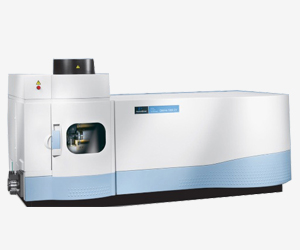
ICP-AES (Inductively Coupled Plasma Atomic Emission Spectrometry)
The ICP-AES system allows high-throughput elemental analysis, and is capable for multiple reportable results per run. It is suitable for the analysis of almost every element type, except for halogens and inert gases; and is especially useful for refractory elements, such as silicon, aluminum, barium, etc.
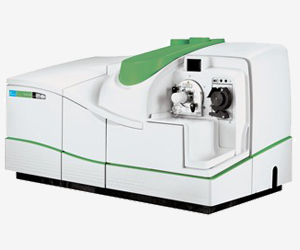
ICP-MS (Inductively Coupled Plasma Mass Spectrometry)
The ICP-MS system provides drastically increased work efficiency, because multiple elements can be analyzed in a single aspiration. Moreover, the ICP-MS comes with internal standards, which enable correction of physical and ionization interferences.
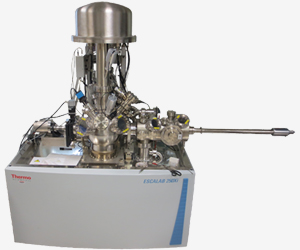
XPS (X-ray Photoelectron Spectroscopy)
XPS is a very powerful measurement instrument as it allows identification of not only the elements within a film, but also their bound elements. For instance, if you have a mental oxide and you want to test if the metal is in a +1 or +2 state, XPS would be helpful to find that ratio.
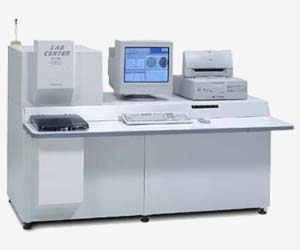
WDXRF (Wavelength Dispersive X-ray Fluorescence Spectrometer)
The principle advantages of the WDXRF system are high resolution (typically 5 – 20 eV) and minimal spectral overlaps. In WDXRF spectrometer, all of the elements in the sample are excited simultaneously; and different energies of the characteristic radiation emitted from the sample are diffracted into different directions by an analyzing crystal or monochrometer.
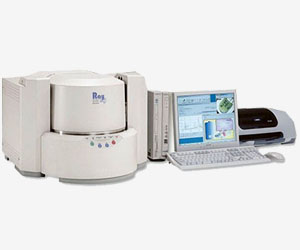
EDXRF (Energy Dispersive X-ray Fluorescence Spectrometer)
EDXRF has characteristics of simplicity, fast operation, none moving parts, and high source efficiency. The resolution of EDXRF system typically range from 150 eV – 600 eV depending on the detector.
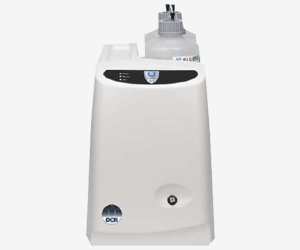
IC (Ion Chromatography)
IC works on almost any kind of charged molecule-including large proteins, small nucleotides, and amino acids. It is able to measure concentrations of major anions, such as fluoride, chloride, and nitrate, as well as major cations such as lithium, sodium, and ammonium in the parts-per-billion (ppb) range.
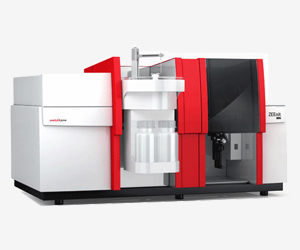
AAS (Atomic Absorption Spectrometer)
AAS is used to analyze metals at very low concentrations, typically in the ppm or ppb ranges. Fast sequential capabilities of AAS help us determine more elements in rapid sequence from one sample analysis, and full automatic wavelength and slit selection simplifies operation. Completely sealed optics with quartz overcoated mirrors offer protection in dusty or corrosive environment.
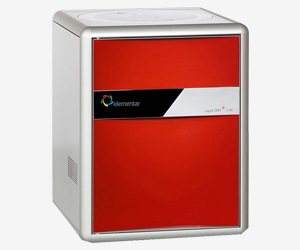
Organic Element Analyzer
The organic element analyzer is automated, flexible, accurate, and fast for percentage determination of carbon (C), hydrogen (H), nitrogen (N), sulfur (S) and oxygen (O) in a variety of sample resources, such as organic synthetic products, plants, animal tissues and soil samples. The organic element analyzer has been widely used in environmental, food quality safety, industrial, and pharmaceutical fields.
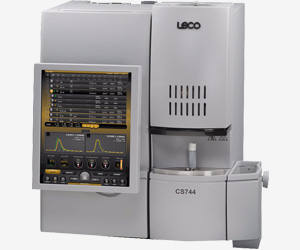
High Frequency Infrared Ray Carbon and Sulphur Analyzer
This analyzer is featured by wide measurement range, high accuracy and high reliability. It is regarded as the ideal analyzer for various sectors, including industrial and environmental fields, to determine the contents of carbon (C) and sulfur (S).
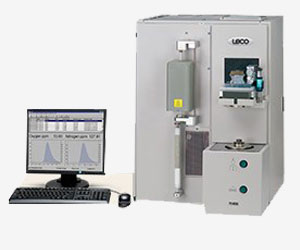
Oxygen-Nitrogen Analyzer
This analyzer utilizes the inert gas fusion techniques and can be used for accurate wide-range measurement of oxygen and nitrogen contents in inorganic materials, ferrous and nonferrous alloys and refractory materials. It is featured with an improved detector design with thermostatic construction and increased protection for ambient temperature fluctuations, as well as a long-life emitter drive and drift-free detection circuitry that ensures long-term stability.
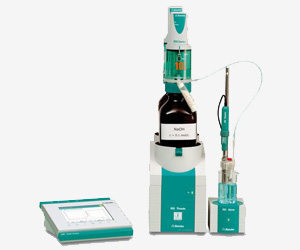
Automatic Potentiometric Titrator
The titrator is useful for a variety of titration types, such as acid base titrations, non-aqueous titrations, redox titrations, argentometric titrations, precipitation titrations, complexometric titrations, pH stat titrations, enzymatic titrations, EDTA titrations, TAN/TBN titrations, diazotization titrations, etc.
Services
Elemental Analysis is a process where compounds within a sample are analyzed to determine their elemental compositions. Lifeasible has been providing high quality elemental analysis services for our customers worldwide from industries as well as academic organizations: